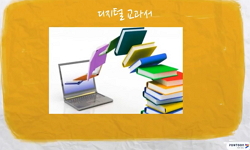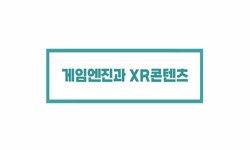[Necessity of research] In the era of digital transformation, there is a growing need for in-depth discussions on the development of educational programs utilizing immersive content such as VR, AR, and the metaverse, as well as the appropriate methods...
http://chineseinput.net/에서 pinyin(병음)방식으로 중국어를 변환할 수 있습니다.
변환된 중국어를 복사하여 사용하시면 됩니다.
- 中文 을 입력하시려면 zhongwen을 입력하시고 space를누르시면됩니다.
- 北京 을 입력하시려면 beijing을 입력하시고 space를 누르시면 됩니다.

VR콘텐츠를 활용한 진로체험 교육프로그램 개발 및 운영 사례 연구 -초·중·고 사례에 대한 통합적 결과를 중심으로 = A Case Study on The Development and Operation of Career Experience Education Programs Using VR Content : Focusing on Integrated Outcomes
한글로보기https://www.riss.kr/link?id=A109520309
- 저자
- 발행기관
- 학술지명
- 권호사항
-
발행연도
2024
-
작성언어
-
- 주제어
-
KDC
300
-
등재정보
KCI등재후보
-
자료형태
학술저널
-
수록면
189-210(22쪽)
- 제공처
-
0
상세조회 -
0
다운로드
부가정보
다국어 초록 (Multilingual Abstract)
[Research Purpose] The development and operation of VR-based career exploration education programs can serve as a valuable case study to propose research on teaching methods and educational directions in the era of digital transformation. [Research Method] Following the ADDIE model, a class was designed, VR content was planned and created, and classes were conducted for elementary, middle, and high school students. Satisfaction was measured in terms of education, content, and class operation.
[Results] Overall educational satisfaction was recorded at 88 points. Specifically, over 60% of participants expressed high satisfaction with the class design, the experiential time based on content planning, and the career-related themes. Additionally, positive feedback on the tutorial phase and the immersive content environment highlighted the potential for fostering a positive perception of the associated career themes.
[Conclusion] This study is significant as it analyzes cases involving the design of educational programs, content planning and production, and educational operation utilizing immersive content such as VR and the metaverse―key components of future education. The discussion focuses on the effectiveness of immersive career education across different school levels in real educational settings.
[Necessity of research] In the era of digital transformation, there is a growing need for in-depth discussions on the development of educational programs utilizing immersive content such as VR, AR, and the metaverse, as well as the appropriate methods for their application.
[Research Purpose] The development and operation of VR-based career exploration education programs can serve as a valuable case study to propose research on teaching methods and educational directions in the era of digital transformation. [Research Method] Following the ADDIE model, a class was designed, VR content was planned and created, and classes were conducted for elementary, middle, and high school students. Satisfaction was measured in terms of education, content, and class operation.
[Results] Overall educational satisfaction was recorded at 88 points. Specifically, over 60% of participants expressed high satisfaction with the class design, the experiential time based on content planning, and the career-related themes. Additionally, positive feedback on the tutorial phase and the immersive content environment highlighted the potential for fostering a positive perception of the associated career themes.
[Conclusion] This study is significant as it analyzes cases involving the design of educational programs, content planning and production, and educational operation utilizing immersive content such as VR and the metaverse―key components of future education. The discussion focuses on the effectiveness of immersive career education across different school levels in real educational settings.
동일학술지(권/호) 다른 논문
-
자아존중감이 뷰티관심도에 미치는 영향관계에서 외모만족도의 매개효과
- 지속가능경영학회
- 이유림 ( You Lim Lee )
- 2024
- KCI등재후보
-
20~30대 여성의 외모태도와 외모관리행동이 대인관계에 미치는 영향
- 지속가능경영학회
- 최정순 ( Jung-soon Choi )
- 2024
- KCI등재후보
-
대학생의 ESG 수업에 따른 ESG 지식 수준 및 사회적 책임에 관한 차이 연구
- 지속가능경영학회
- 서여주 ( Yeo-joo¸ Suh )
- 2024
- KCI등재후보
-
복합리조트 서비스스케이프가 고객의 감성적 소비 경험에 미치는 영향에 관한 연구
- 지속가능경영학회
- 이승현 ( Seunghyun Lee )
- 2024
- KCI등재후보




 KISS
KISS






